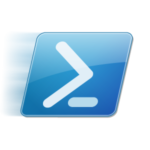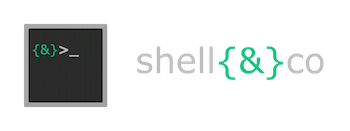
I have found a great script to remove local profile to a remote or a local machine. I have added two features to this script :
- list only the “non loaded” profile
- possibility to remove all profiles
The first point is important because if you try to delete a loaded local profile (local or remote), the script will fail.
The second point allow you to delete in one shot all local profiles listed in the target computer.
Have fun…
My Powershell script categories
- Active Directory
- Cluster
- Database
- Exchange
- Files and folders
- Hardware
- Network
- Operating System
- PKI
- SCCM
- Service and process
- Tips
- VMWare
<#
.SYNOPSIS
Interactive menu that allows a user to connect to a local or remote computer and remove a local profile.
.DESCRIPTION
Presents an interactive menu for user to first make a connection to a remote or local machine. After making connection to the machine,
the user is presented with all of the local profiles and then is asked to make a selection of which profile to delete. This is only valid
on Windows Vista OS and above for clients and Windows 2008 and above for server OS.
.NOTES
Name: Remove-LocalProfile
Author: Boe Prox
DateCreated: 26JAN2011
Contributor: Nicolas HAHANG
DateModified: 14JAN2016
.LINK
http://boeprox.wordpress.com
http://msdn.microsoft.com/en-us/library/ee886409%28v=vs.85%29.aspx
.EXAMPLE
Remove-LocalProfile
Description
-----------
Presents a text based menu for the user to interactively remove a local profile on local or remote machine.
#>
#Prompt for a computer to connect to
$computer = Read-Host "Please enter a computer name"
#Test network connection before making connection
If ($computer -ne $Env:Computername) {
If (!(Test-Connection -comp $computer -count 1 -quiet)) {
Write-Warning "$computer is not accessible, please try a different computer or verify it is powered on."
Break
}
}
Try {
#Verify that the OS Version is 6.0 and above, otherwise the script will fail
If ((Get-WmiObject -ComputerName $computer Win32_OperatingSystem -ea stop).Version -lt 6.0) {
Write-Warning "The Operating System of the computer is not supported.`nClient: Vista and above`nServer: Windows 2008 and above."
Break
}
}
Catch {
Write-Warning "$($error[0])"
Break
}
Do {
#Gather all of the user profiles on computer
Try {
# ADDED BY NH
# $users = Get-WmiObject -ComputerName $computer Win32_UserProfile -filter "LocalPath Like 'C:\\Users\\%'" -ea stop
$users = Get-WmiObject -ComputerName $computer Win32_UserProfile -filter "LocalPath Like 'C:\\Users\\%' and Loaded='False'" -ea stop
}
Catch {
Write-Warning "$($error[0]) "
Break
}
#Cache the number of users
$num_users = $users.count
Write-Host -ForegroundColor Green "User profiles on $($computer):"
#Begin iterating through all of the accounts to display
For ($i=0;$i -lt $num_users; $i++) {
Write-Host -ForegroundColor Green "$($i): $(($users[$i].localpath).replace('C:\Users\',''))"
}
Write-Host "-----"
Write-Host -ForegroundColor Green "all: Remove all local profiles listed above"
Write-Host -ForegroundColor Green "q: Quit"
#Prompt for user to select a profile to remove from computer
Do {
# ADDED BY NH
# $account = Read-Host "Select a number to delete local profile or 'q' to quit"
$account = Read-Host "Select a number to delete local profile or type 'ALL' to delete them all. Type 'q' to quit"
#Find out if user selected to quit, otherwise answer is an integer
# ADDED BY NH
# If ($account -NotLike "q*") {
If ($account -Notmatch "all|q") {
$account = $account -as [int]
}
}
#Ensure that the selection is a number and within the valid range
Until (($account -lt $num_users -AND $account -match "\d") -OR $account -Like "q*" -or $account -match "all")
If ($account -Like "q*") {
Break
}
# ADDED BY NH
if ($account -is [int]){
Write-Host -ForegroundColor Yellow "Deleting profile: $(($users[$account].localpath).replace('C:\Users\',''))"
#Remove the local profile
($users[$account]).Delete()
Write-Host -ForegroundColor Green "Profile: $(($users[$account].localpath).replace('C:\Users\','')) has been deleted"
#Configure yes choice
$yes = New-Object System.Management.Automation.Host.ChoiceDescription "&Yes","Remove another profile."
#Configure no choice
$no = New-Object System.Management.Automation.Host.ChoiceDescription "&No","Quit profile removal"
#Determine Values for Choice
$choice = [System.Management.Automation.Host.ChoiceDescription[]] @($yes,$no)
#Determine Default Selection
[int]$default = 0
#Present choice option to user
$userchoice = $host.ui.PromptforChoice("Information","Remove Another Profile?",$choice,$default)
}
# ADDED BY NH
# Remove all local profiles
if ($account -match "all"){
Write-Host "enter all"
Write-Host $num_users
for ($j=($num_users -1); $j -ge 0; $j--) {
Write-Host -ForegroundColor Green "$($j): $(($users[$j].localpath).replace('C:\Users\',''))"
#Remove the local profile
($users[$j]).Delete()
Write-Host -ForegroundColor Green "Profile: $(($users[$j].localpath).replace('C:\Users\','')) has been deleted"
}
#Present choice option to user
$userchoice = 1
}
}
#If user selects No, then quit the script
Until ($userchoice -eq 1)
Reference
Remove local user profile

Right here is the right website for anyone who would like to find out about this topic. You understand so much its almost tough to argue with you (not that I personally will need to…HaHa). You certainly put a new spin on a subject that has been discussed for ages. Wonderful stuff, just wonderful!